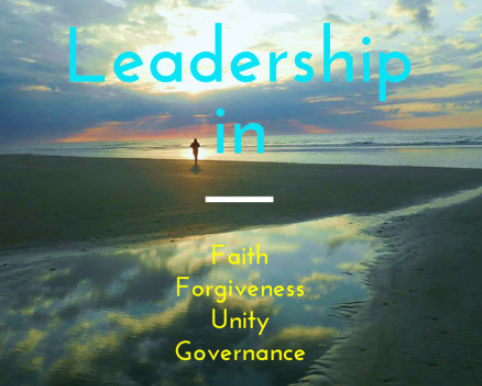When It’s Time To Lead, Who Steps Up?

Charleston, the “Holy City.” So named because of an overriding religious history and a burgeoning reconciliation between races. A holy city’s peace shattered by bullets claiming nine lives at what has been considered the “mother” church among African-Americans, Emmanuel AME Church, founded by freed slaves long before the Civil War.
A peace now torn asunder – How to react? How to respond? This is where leadership has become the key. Not just leadership from the “leaders,” but leadership from among the “followers.”
The issues of racial tension – the fomenting around the Confederate flag flying at the SC State Capitol, the economic divide – has been ever present. But there are foundational principles that have arisen and captured the populace of this 130,000 person community.
A principle of leadership was expressed many years ago by a corporate executive, Max Depree, who in his book, Leadership is an Art, wrote that “Leaders must take a role in developing, expressing, and defending civility and values. Civility has to do with identifying values as opposed to following fashions. To lose sight of … hope and opportunity … is to be at the dying edge.”
What are civilities and values? Here is how Custom Development Solutions (CDS) would list them, based on the principles developed and espoused by founder and President David G. Phillips. “Underlying everything we do is a foundation that rests on the following basic unalterable statutes: Love, equity, justice, peace, tolerance, forgiveness, kindness – you can name many more similar attributes,” David says.
We can easily see that these civilities and virtues are being exercised in Charleston in the days and weeks following the horrific shooting at a Wednesday night Bible study meeting. Here are some examples:
Leadership in Faith
The interim pastor of Emmanuel AME Church was not the first but perhaps the most eloquent in leading members of the “Holy City” toward reconciliation. The Rev. Dr. Norvel Goff, preaching at the first service held in the church following the shooting, said, “If you want to make a difference, you must listen and learn.”
You accomplish this, he said, by seeking God’s face (through prayer), seeking God’s peace (“we need more peacemakers”), seeking God’s love (this supports us “in the midst of trials and tribulations” as a power greater than ourselves) and seeking God’s plan (“You have a future,” but it won’t happen overnight).
Rev. Goff concluded his message with a chant the should be familiar to all of our ears, “We shall overcome – black and white – someday.” This is the wellspring of unity in a community of faith, of which Charleston is a notable one.
Leadership in Forgiveness
Relatives of shooting victims appeared at suspected gunman Dylann Roof’s arraignment to express forgiveness and to suggest he repent. This was a repudiation of Roof’s hateful words and chilling action. Some black leaders said they believed the immediate outpouring of forgiveness was too much, too soon, feeling that this was a capitulation of their position in the fight for equality. Others disagreed.
One who has experienced oppression, though on a different continent, has some sobering words. Bishop Desmond Tutu, writing in The Book of Forgiving, says, “Just as we take a leap of faith when we make a commitment to love someone and get married, we also take a leap of faith when we commit ourselves to a practice of forgiving. We do not forget or deny that we are always vulnerable to be hurt again but we leap anyway.” The leap has been taken in Charleston.
Leadership in Unity
A community rose up a few days after the shooting as more than 15,000 people came together for a peace walk on the Arthur Ravenel Jr. Bridge that connects Charleston to Mount Pleasant.
Giovanni Calise, writing in the e-magazine Main St. Rock, said, “The cause of the event was pure hatred, unexcused and unaccepted. But in the midst of this tragic event, a community united. United in love, united in faith, and united in support for our fellow brothers.” Women, men and children of many races joined together in a revelry of equality and justice. (See photos at Main St Rock)
Leadership in Governance
Whether because of political expediency or because of genuine awareness of the inequity of having a Confederate flag flying on the lawn of the State House, South Carolina Gov. Nikki R. Haley announced her support of removal of the battle flag that was raised in 1962. She said she was moved by the brutality of the shooter’s act and that the time has come to take down the flag. In another act of unity, she was joined in the call for removal with U.S. senators Lindsey Graham and Tim Scott, an African-American. The South Carolina legislature will need to act to furl the flag forever.
Where will these acts of leadership take Charleston? With continued and steadfast belief in reconciliation and the exercise of grace, the city’s hopes for “a new day” will accelerate. Can this example filter into Ferguson, New York City, Baltimore? Although different communities with different issues at play, with discipline and determination, all of mankind can embrace “civilities and virtues.”
D.C. Dreger, ACFRE is a Vice President at Custom Development Solutions (CDS). He has over 30 years experience as a fundraising and organizational development professional. He can be reached at dc.dreger@cdsfunds.com.